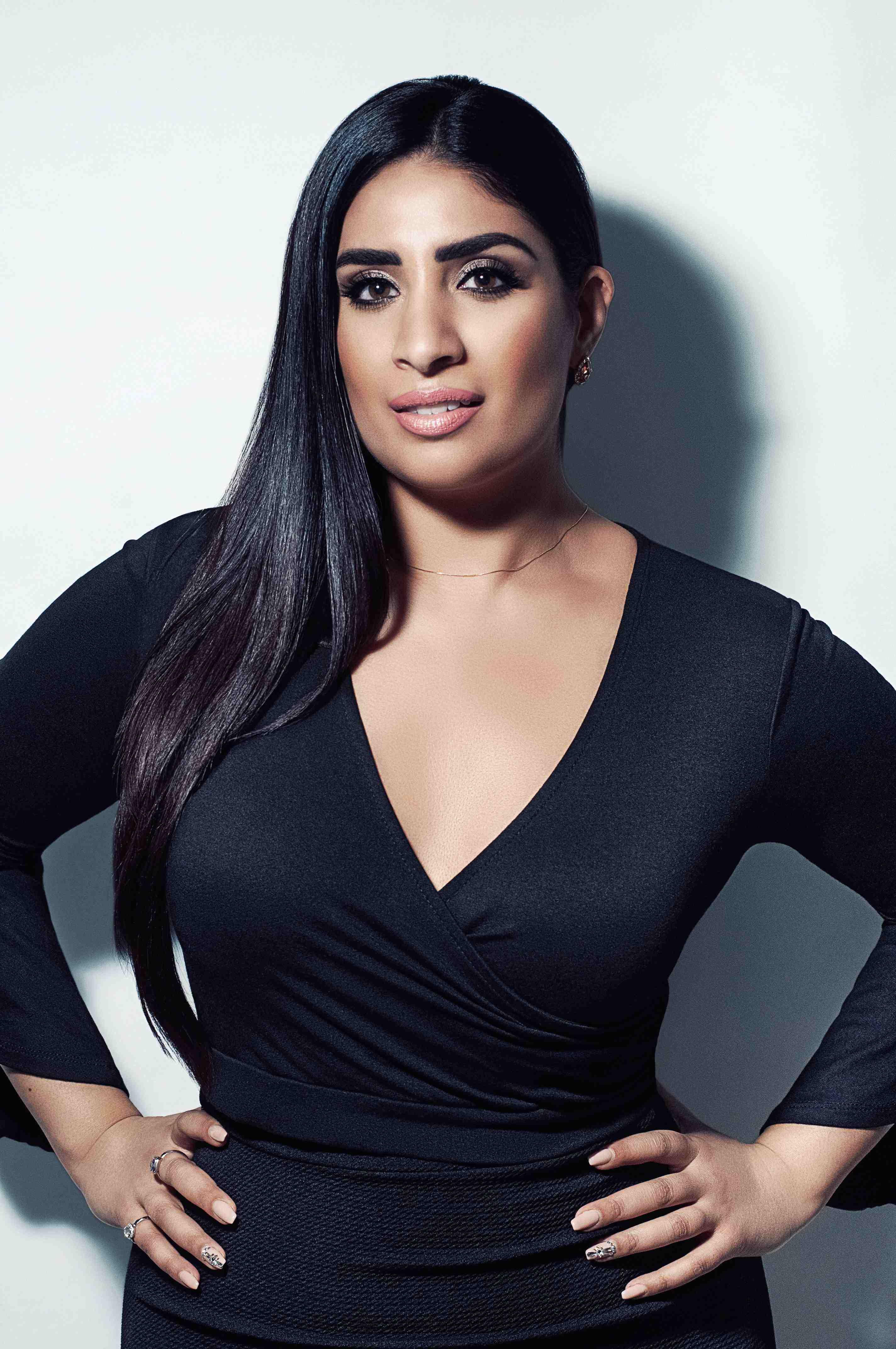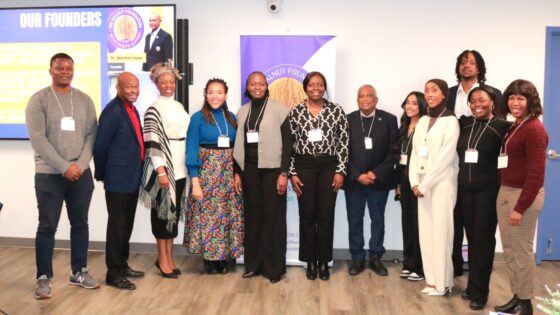on
BY: ALYSSA MAHADEO
Award-winning, Canadian celebrity makeup artist Kavita Suri, was born and raised in Toronto to Indian parents.
It was a strict and somewhat flexible upbringing once they got past the culture shock of the freedom desired by growing up in western culture, but Kavita says that she and her siblings are thankful that her parents raised them to appreciate their Indian heritage, and also allowed them to discover their own paths for themselves.
“Growing up, my parents instilled the values of faith and family, to make sure that we’re always taking care of each other, to communicate and work through any issues we might have, and also to be ourselves and be good people to others always,” Kavita shares.
Although her life has taken a more entrepreneurial route, Kavita had wanted to become a police officer. However, after speaking with her career counsellor, they advised that if she was interested in having a family when she got older, it would be a tough path to take.
Reflecting on the advice she was given now, Kavita is in her 30s and so deeply invested in her career that starting a family isn’t high on her current list of priorities.
“His advice made sense at the time, he told me that for a reason, but it also steered me towards my second choice for a career and that was makeup artistry and that really was where everything unfolded in the way that it needed to,” she explains.
When Kavita started dabbling in the world of makeup artistry, the industry was nowhere near what it is today. Since the era of video tutorials, almost anyone can go online and learn the whole step by the step application process.
“My friends would come over and ask me to do their makeup because they knew I had an interest in it,” Kavita shares. “I was also a model for a South Asian agency and through that I became acquainted with a girl who mentioned to me about a cosmetics line she was creating.”
Through her acquaintance, Kavita had the opportunity to further develop her makeup application skills by helping out during photo shoots, and that brand developed into something that helped to pave her career in the cosmetics industry.
“The line, developed into what we know now as Toronto based brand Vasanti Cosmetics that caters to women of color, and we grew together, they were just starting out, and I had just started offering my makeup services,” Kavita says. “I would help them out on events, the wedding industry started to open up and it really flourished from there.”
In order to pursue her new chosen career path, Kavita dropped out of University, much to the dismay of her Indian parents. “I wanted it so bad, I wanted to do my own thing, I wanted to express myself, and I wanted to launch my own business.”
“My parents were against it, it was tough for them to understand what I wanted, but I didn’t let those negative voices at the time bring me down, I just kept going, and all these wonderful opportunities would come to me,” Kavita explains.
During that time Kavita recalls that she felt very alone, she wanted her family to support her, but felt they didn’t understand her ambitions. Her parents eventually came around, once they saw the fruits of her labor and the success she had wrought for herself making what they thought was just a hobby into a successful business.
“Your parents want the best for you, they want you to have a stable job, a husband and kids, but everyone has their own journey and path. I just tell them I’m living my best life and I’m happy and that’s all that matters.”
It took many years for Kavita to reach that point, to finally win the support of her parents and with over 15 years of experience in the industry, Kavita is a game-changer, developing a brand for bridal beauty while also running a medical spa, beauty academy and her own skincare line, InfuseDerm.
“I started my makeup services at the age of 19, by the time I was 25 I was working toward opening my own spa in Yorkville, and with God’s grace and a lot of hard work it’s doing well,” Kavita says.
“Being an entrepreneur is something that you sign up for and you make a hard commitment to. There were times when I considered throwing in the towel as it isn’t easy and these are the things that we don’t share with people because everything always has to look okay.”
“I’ve never looked at being a woman of color as a disadvantage, it was an advantage for me because I looked different and with having a unique look it automatically attracts people to ask ‘Who is this girl here in Toronto doing her thing?’ and I’m proud to be a representative for that.”
In addition to all that she has achieved, negativity is a big part of the entrepreneurial journey and most important is dealing with it once you reach a level of success where people will stop at nothing to bring you down. “When that happens I honor my feelings, I don’t retaliate that’s not who I am and it’s not my responsibility to teach them their lesson, and I delete myself from them. I let them go in whichever way I need, knowing that this no longer serves me and my higher purpose,” Kavita explains.
“Surround yourself with strong positive women that will help you through the loops, ask questions, find mentors within your industry, they can guide you to discover things you never even knew.”
Stay in the loop with exclusive news, stories, and insights—delivered straight to your inbox. No fluff, just real content that matters. Sign up today!













